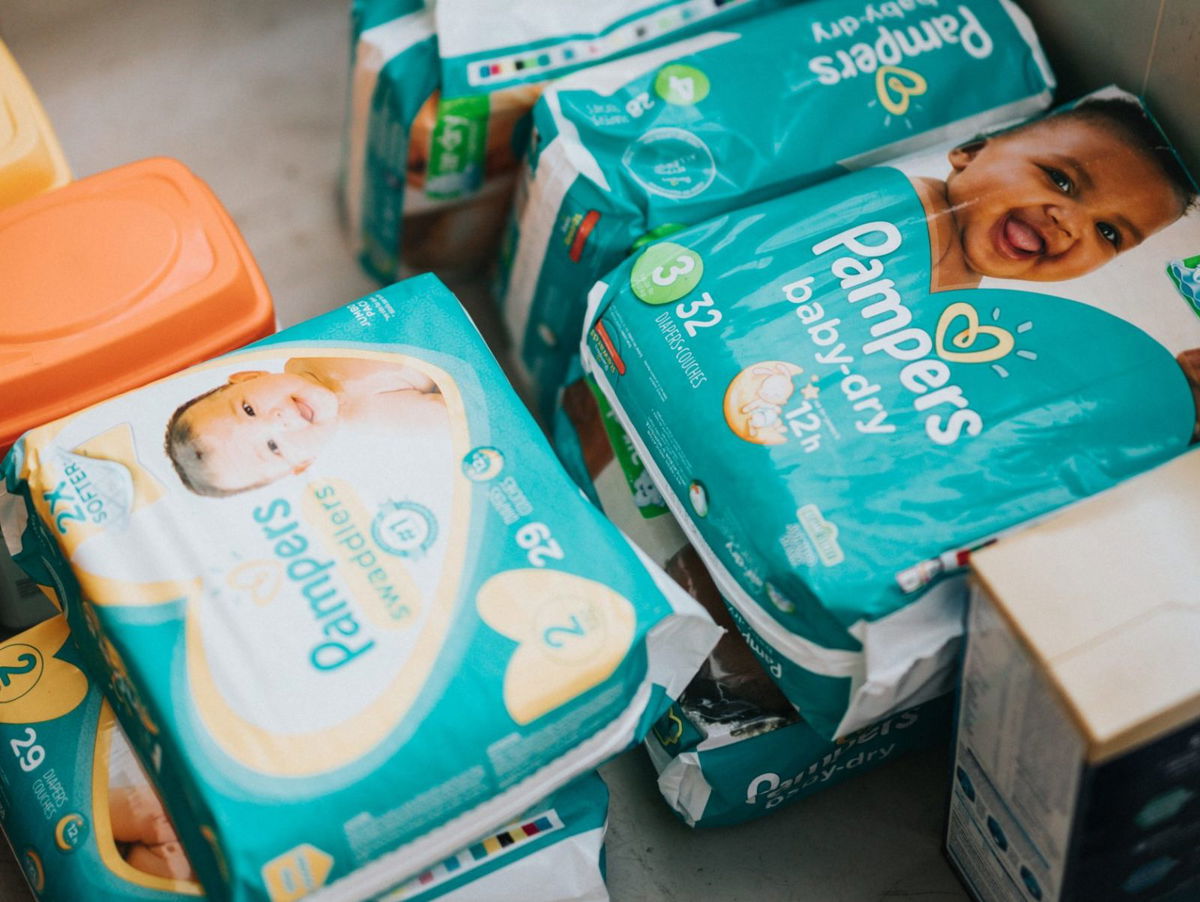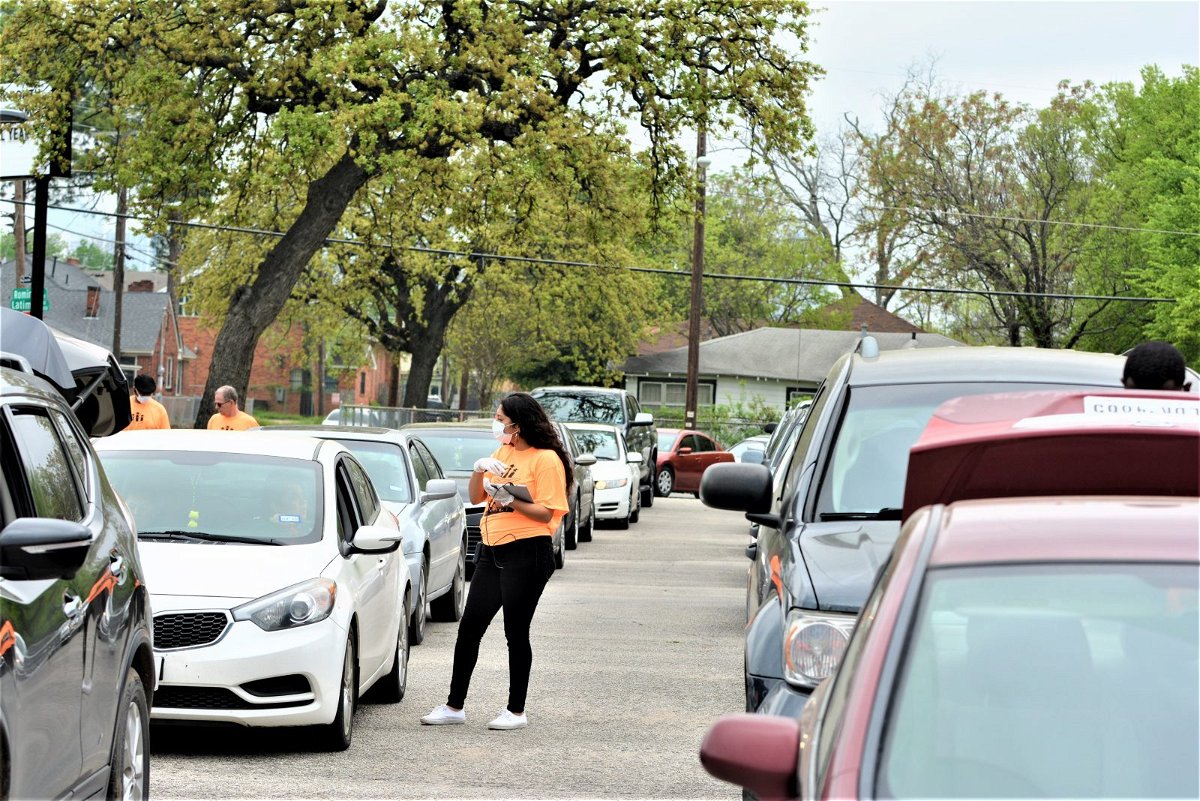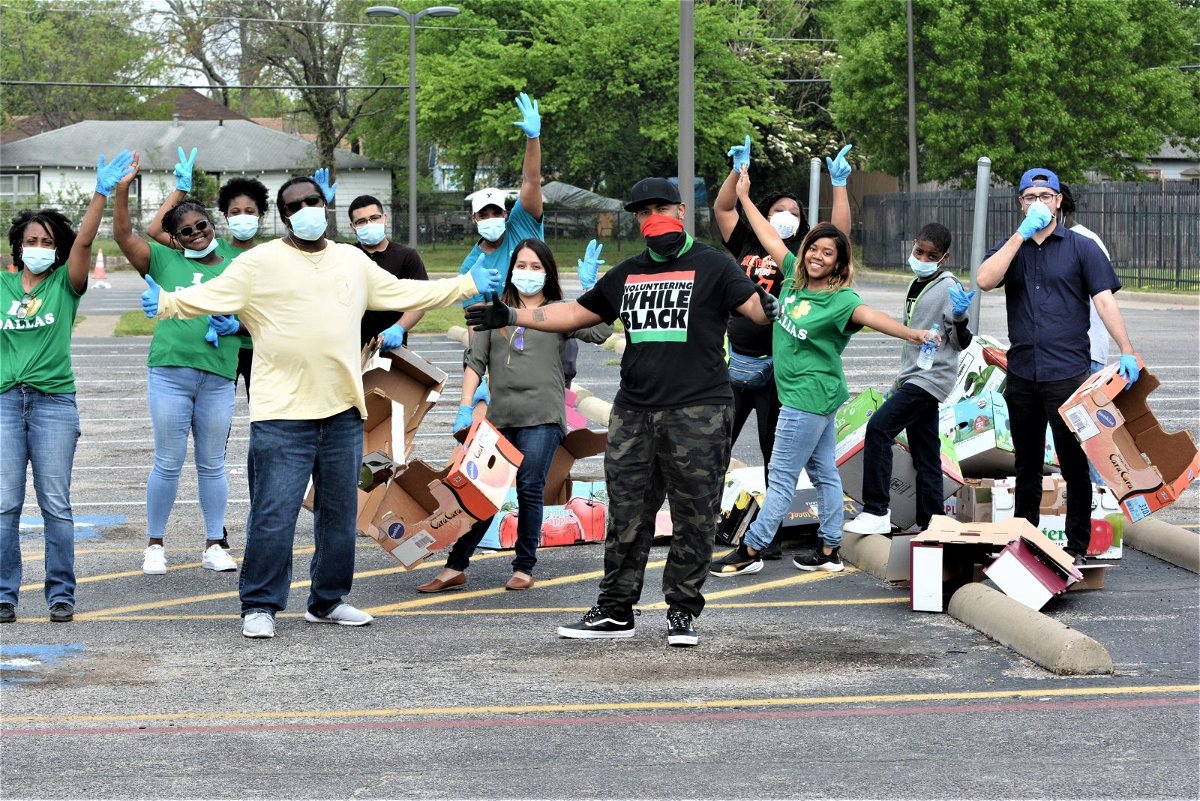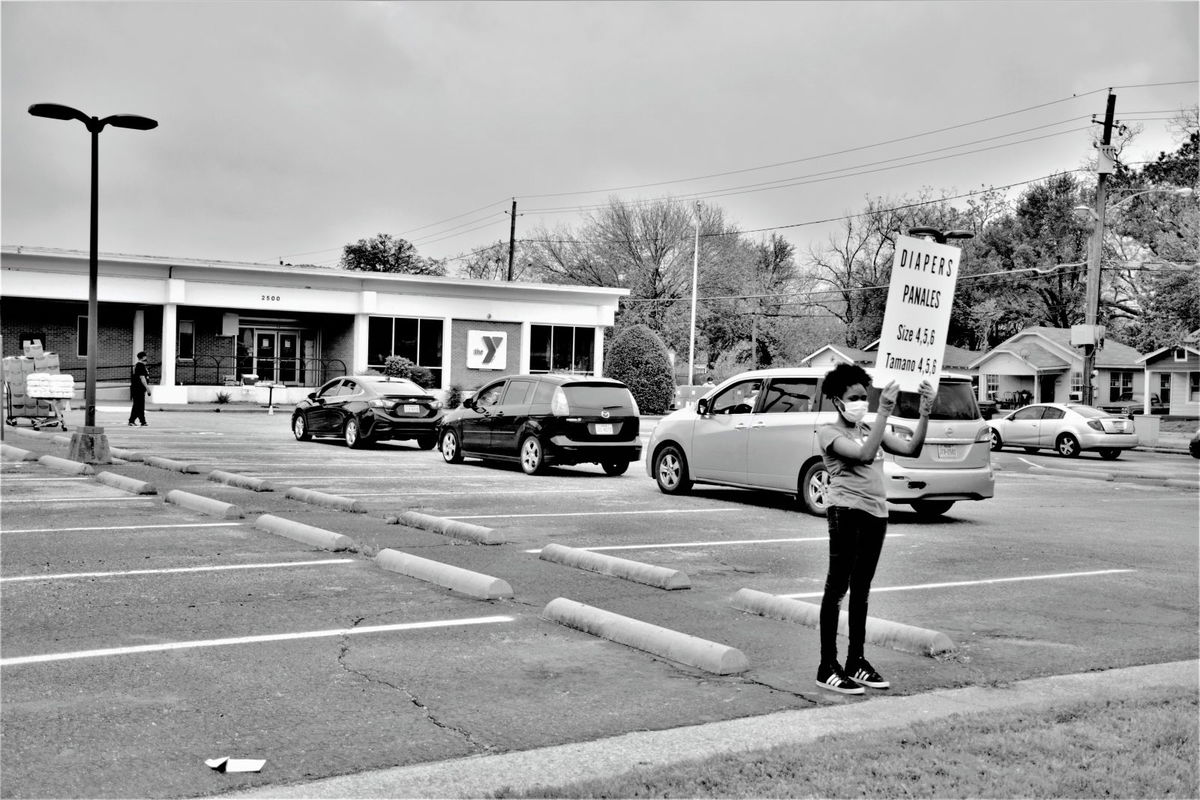Co-published by our media partner, The Dallas Weekly
The line of cars in front of the Park South YMCA stretched along Metropolitan Avenue all the way to Interstate 45, where vehicles waited even on the highway. Another line of cars snaking toward the YMCA backed up for blocks on Malcolm X Boulevard.
The passengers waited, patiently and gratefully, for the diapers and wipes Phillipa Williams and Shawana Carter had amassed. Williams’ nonprofit, I Look Like Love, typically doles out 12,000 diapers during her monthly events at South Dallas WIC locations. She knew the demand would be higher at this one, even before cars began lining up.
“The reality is, the diaper need out there presently is as intense as the toilet paper need,” Williams says.

Dallas County had declared a state of emergency two weeks prior as cases of the novel coronavirus rose. Williams reached out to Carter, whose nonprofit Carter’s House provides children’s clothing and baby items to families from its headquarters at the Martin Luther King Jr. Community Center. The two women had teamed up previously to host pop-up baby boutiques for single parents, and they decided to face the pandemic head-on in another joint effort.
They turned to Hope Supply, the largest diaper provider in Texas, and requested the maximum monthly allocation. Another six pallets came from World Vision thanks to help from Froswa’ Booker-Drew, the State Fair of Texas vice president of community affairs and strategic alliances, who works with South Dallas nonprofits to build capacity and foster collaboration.
The Friday, March 27 event was supposed to take place from 10 a.m.-1 p.m., but “we started about 9:20 because the crowd was so big,” Carter says. “We were done by 11.”

They distributed more than 15,000 diapers to 300-plus families, with cars still lined up for blocks. As they realized they were about to run out, Williams and Carter began walking along Metropolitan and Malcolm X to let people know.
“They all said, ‘Thank you so much for doing this. Will you do it again?’ I did not encounter anybody who was angry, even when we had to tell them we were out,” Carter says. “For as crowded as it was, for as many people and as long as some of them waited, it was a good day.”
The hardest part, she adds, was not being able to touch anyone. Williams and Carter decided beforehand that it would be a drive-through rather than walk-in event, for everyone’s safety, and “it saved us,” Carter says.
“If you’d been outside the car, I would have hugged somebody,” she says. “Somebody’s always gonna cry, and we always wanna comfort.”

The bleak realities of COVID-19 led Williams and Carter to loop in another partner, Tavian Harris of Arlington-based Seasons of Change, so that families receiving diapers and wipes could sign up for additional services beyond the event.
Harris says she is seeing increased needs among “the working poor — not just those below poverty, but those families making $6 to $10 an hour too much for food stamps. Those who had just gotten on their feet are now coming in struggling.”
The Seasons of Change intake center normally serves up to 25 clients a day; that number is now topping 50. Harris and her staff are helping families set up Medicaid and food stamps through phone calls and Facebook. Their warehouse, normally stocked with furniture, bedding, sheets and other household goods, is “half empty,” she says.
The average Seasons of Change client has four to five children, usually with two to three in diapers, Harris says. The financial strain of COVID-19 means some families can no longer afford their diaper supply, Williams says, and the virus simultaneously is prompting others, who can afford it, to hoard supplies.
“This leaves little for others, creating a culture of anxiety in households that can lead to two things: diaper stretching (or the reuse of a diaper beyond capacity), and child abuse,” she states on the I Look Like Love website.
“The reality is, even under the best of circumstances, sensitivities are naturally going to be more heightened,” Williams says, expressing her concern for children amid their parents’ increased stress. “We know we won’t be able to service everybody, but if we can minimize those two things, then we hopefully can do something for the community.”
All three women are anticipating more needs amid COVID-19 and in its aftermath. Williams and Carter have upped their diaper and wipes inventories to provide for both familiar and new faces. They need help, and are receiving some of it from within the community: Members of a South Dallas church donated diapers after a request made the rounds. A former I Look Like Love client even brought back a large bag of diapers her baby couldn’t use.

Carter’s House, one of the few providers of school uniforms in South Dallas, serves about 700 children annually, and Carter believes that number may double or triple this year.
“We are already preparing for residual effects when this thing does get back to normal,” she says, “because a lot of people are not at work.”
Providing more services will require more funds and more work. The women know they are better off working as a team than in silos. Even during our Zoom interview, they brainstormed ideas and swapped updates to help each other in their respective efforts.
Booker-Drew is cheering on their collaboration and pushing all community nonprofits to NorthTexasCares.org, formed recently by 20 area foundations and United Ways to respond to nonprofits’ urgent needs in the wake of COVID-19.
Large nonprofits have “people on their teams that can do R&D [research and development] and can articulate their message, whereas you have these smaller nonprofits that are on the ground that are doing the work, and we have penalized them because they don’t have those things in place,” Booker-Drew said during a recent Social Venture Partners Dallas online discussion. “It’s important in this season to recognize that and to make sure that we are applying an equity lens, knowing that there has been a disadvantage for being able to compete.”
Her fear is that the magnitude of the COVID-19 disaster could strain smaller organizations so much that they go under, which would devastate the communities they serve. Working together helps protect them with a “a safety net of relationships and resources,” Booker-Drew says. She recently launched the website ServeDFW.org so that small and mid-size nonprofits who support low-income families can more easily connect with the City of Dallas, funders and donors, and each other as they respond to COVID-19 needs.
Carter, Harris and Williams seemed weary yet determined on a recent Zoom call. The stories of how their nonprofits came about share similarities, both because their past personal experiences allow them to relate to their current clients, and because each woman believes her nonprofit was born out of God’s call on her life.
It’s their shared faith that will sustain them through the unknown challenges ahead, they say.
“To be able to be chosen to serve at this time, God is trusting us with a lot,” Harris says. “He’s trusting us with people’s lives.”
How to help
Money donated to I Look Like Love will go toward purchasing diapers in bulk at discounted rates. They also are accepting donations of wipes and diapers, especially larger sizes. Visit ilooklikelove.org or email letsconnect@ilooklikelove.org.
Just $25 allows Carter’s House to buy a uniform for a child in need. They also are accepting new children’s socks and underwear in all sizes. Visit cartershouse.org or email request@cartershouse.org.
Seasons of Change is taking donations of cleaning supplies and new household goods, especially car seats, cribs and other baby gear. Monetary donations can be submitted via Paypal. Visit seasonsofchangeinc.com or email info@seasonsofchangeinc.com.
Need help?
Subscribe to I Look Like Love’s newsletter at ilooklikelove.org/contact to be notified of future diaper distributions. Events require pre-registration. Families in extreme crisis can apply for emergency assistance at ilooklikelove.org.

Leave a Reply